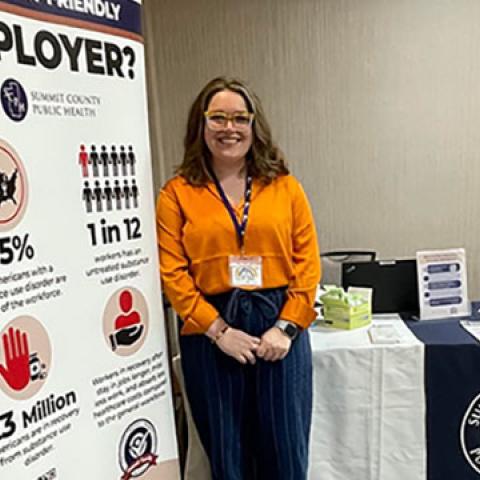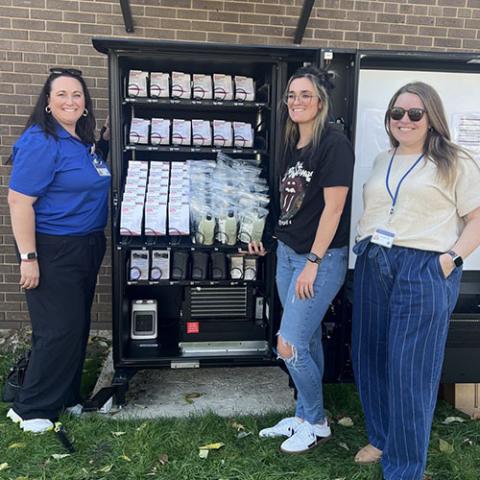For Maggie Urban-Waala, the fight against addiction is more than a public health mission—it’s personal. The Case Western Reserve University School of Medicine Master of Public Health student and harm reduction advocate’s work preventing overdoses and overdose deaths earned her the Ohio Department of Health’s 2024 Ohio Injury Prevention Partnership (OIPP) Champion Award. But recognition isn’t what motivates this soon-to-be graduate—she calls on her own story of recovery to save lives, challenge stigmas and deliver compassionate care to those who need it.
The former journalist turned public health coordinator at the Summit County Public Health Department is enrolled in the university’s Public Health Training for Northeast Ohio Workforce program. In her work and her studies, she stresses the importance of harm reduction practices and that support, not shame, helps make life-saving care possible. And she’s not afraid to get personal, drawing from her own history of substance misuse throughout her teens and early twenties
“I often use my story of substance misuse to advocate for those we serve, to show recovery is possible,” said Urban-Waala. “By putting my face to the often misunderstood concept of addiction, I encourage community members to learn more about substance use, to carry Naloxone and to approach others with kindness.”
According to the Ohio Injury Prevention Partnership (OIPP)—the organization that recognized Urban-Waala with her recent award—injury and violence remain the leading causes of death for Ohioans aged 1 to 44, a statistic that includes overdoses.
Urban-Waala says the OIPP Champion Award validates the innovative approaches she and her team have taken to support people in all stages of addiction and recovery. One such approach involved the addition of nearly 300 NaloxBoxes (totaling/including 600 Naloxone kits) in Summit County, which have saved many lives. However, stigma remains one of the biggest challenges in her work.
“A hot cup of coffee and a kind word can go a long way, “ said Urban-Waala. “Many people who use substances face judgment from society, which can prevent them from seeking help. My job is about providing resources, support and dignity to those who often receive none.”
Urban-Waala is grateful for a primary care physician who treated her through recovery, noting she set an example for all health professionals.
“She made me feel heard, respected and most importantly, safe,” said Urban-Waala. “Everyone deserves nonjudgmental, noncoercive support and the autonomy to define what recovery looks like for themselves.”
For Urban-Waala, Case Western Reserve’s Master of Public Health program provides a deeper understanding of health equity principles, evidence-based practices and innovative strategies for addressing complex public health challenges.
After commencement, she will continue serving vulnerable populations while expanding her research experience. She has simple advice for those seeking a career in public health: Choose your words carefully.
“It might seem like a small thing, but the words we choose can either help someone feel safe enough to ask for support or shut them down entirely,” said Urban-Waala of using stigma-free, person-first language. “Being intentional about the way we speak and interact is one of the simplest, yet most powerful tools to reduce stigma and save lives.”
Learn more about the Master of Public Health program at Case Western Reserve University.



